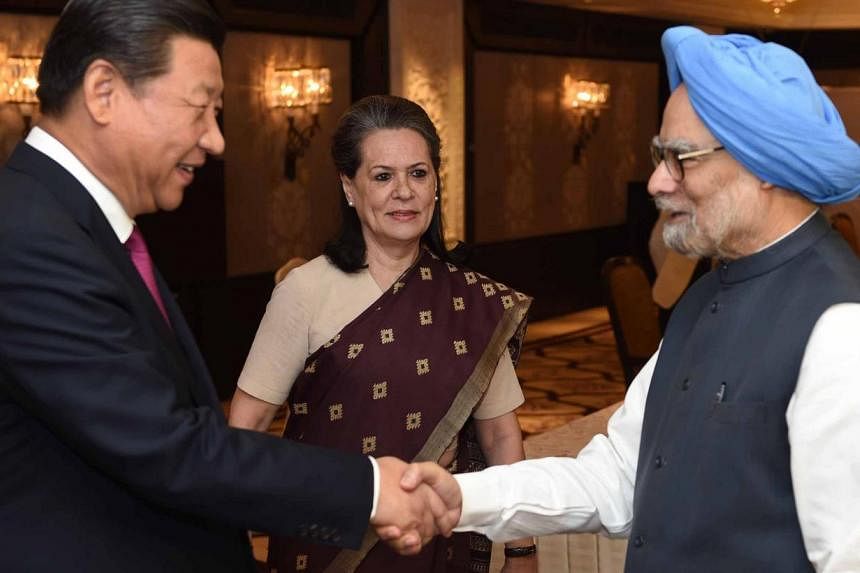NEW DELHI - When Dr Sanjaya Baru, who served as media adviser to premier Manmohan Singh in the first term of the previous Congress government, penned his tell-all memoir The Accidental Prime Minister, he didn't quite expect the sharp backlash that followed.
He was called a "betrayer" and "backstabber" by Congress party leaders even as a debate broke out about the ethics of it all.
Through it all, sales of his book climbed, with over 85,000 copies sold in six months after coming out in mid-April.
In India, publishers consider any English language book that sells above 40,000 a bestseller as the average sale is 5,000 copies. The exceptions are a few writers like Chetan Bhagat who sell over a million copies per title. English books have limited readership in a country where only an estimated 350 million of the 1.2 billion population speak and read English.
"I never expected this kind of reaction... We have had this traditional problem in India that most people who leave government continue to hanker for jobs (in government) so they don't want to talk," Dr Baru, 60, a former journalist, told The Straits Times.
"Suddenly they (publishers) discovered a market for books like this." Four other recent political memoirs have also sold tens of thousands of copies.
In his book, Dr Baru reproduces some of the conversations he had with Dr Singh when he was the premier's adviser from 2004 to 2008. The book includes behind-the-scenes accounts of how India's top leader came close to quitting over his party's bid to torpedo the India-United States civilian nuclear deal, which was eventually signed in 2008.
Dr Baru, a former visiting professor at the Lee Kuan Yew School of Public Policy and the Institute of South Asian Studies of the National University of Singapore, also revealed what many Indians had suspected - that Congress chief Sonia Gandhi got regular briefings on government matters from an official in the Prime Minister's Office.
Political memoirs may have been around in India for some time, but it was considered bad form to reveal behind-the-scene goings on or criticise political leaders, and most earlier such accounts were reverential towards their subject.
But four authors have stirred the pot recently with their accounts of the Congress rule, which towards the end was marred by corruption, slowing growth and absence of leadership that led to the party's loss of the May general election.
"They (political memoirs) have come of age in India," said Mr Gurcharan Das, an author and columnist.
"These books are lot more entertaining. There is an element of voyeurism because we love gossip and stories. These books confirm if gossip heard were correct."
Former Congress leader Natwar Singh, who was forced to quit as external affairs minister in 2004 over links to the United Nations oil-for-food scandal related to illicit sale of Iraqi oil, sent the Congress party into a tizzy with his book One Life is Not Enough, released in August.
In it he revealed how Congress leader Rahul Gandhi had persuaded his mother Sonia against taking the Prime Minister's post fearing she would be killed like his father Rajiv and grandmother Indira, who both were assassinated while in office as premier.
This demolished Mrs Gandhi's own account that she listened to her "inner voice".
Former bureaucrat Vinod Rai, 66, who was the Comptroller and Auditor General of India from 2008 to 2013, wrote in The Diary of the Nation's Conscience Keeper - Not Just an Accountant, that Dr Singh knew all about the corruption scams in the government. These included the sale of spectrum 2G licences at throwaway prices to a select few.
"Baru's book nudged the door open. There is clearly a demand," said Mr Singh, who in the past had written a number of books including about his life as a diplomat, all of which did not sell more than 5,000 each.
His latest has sold upwards of 70,000 copies in hardback while Mr Rai's book, released in the middle of September, has almost sold out its first run of 50,000 copies, according to its publishers.
Sales have also been pushed by the controversies surrounding each of these books. For instance, Mrs Sonia Gandhi has publicly expressed her unhappiness with Mr Singh's book.
Publishers see the new form of political memoirs as a good trend.
"We have never had a culture of writing or recording memoirs. People in position of power never felt the need or said they couldn't write what they wanted to write. In recent times political circumstances have changed, allowing them to do so. It is a welcome change," said Ms Priya Kapoor, editorial director at Roli Books, a publishing house.
Many more are expected.
"Yes, we do see this trend carrying over, with at least a couple of more books from prominent politicians, or ex-bureaucrats writing their stories," said Mr Ananth Padmanabhan, senior vice-president (sales), Penguin Books India, Mr Baru's publisher.

